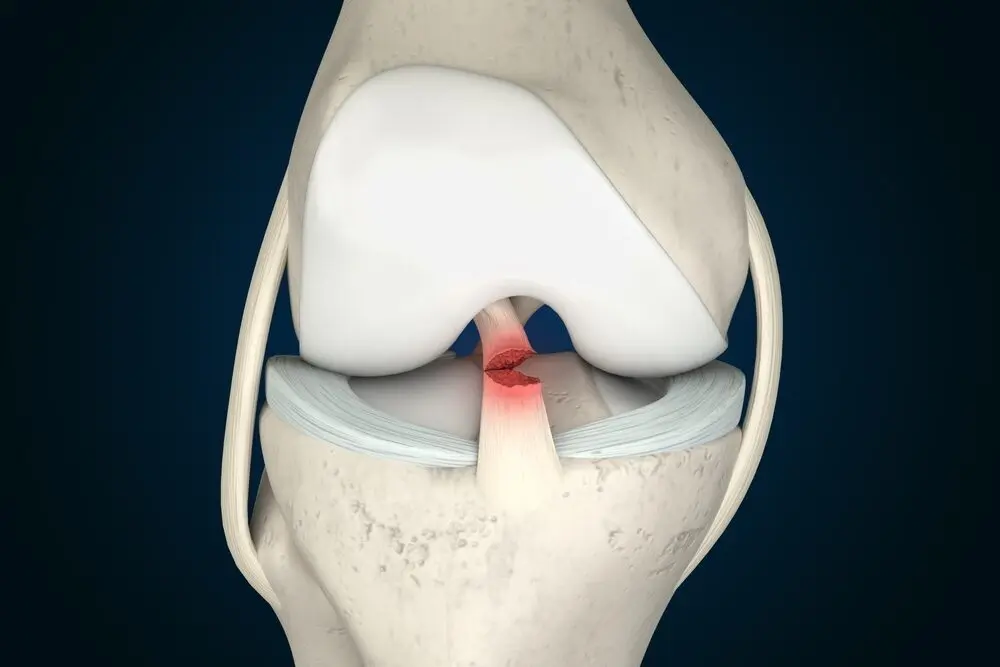ACL Injuries
ACL Injury Treatment in Boston, MA
A sprained or torn Anterior Cruciate Ligament (ACL) is a very common injury that can affect anyone. Athletes are more prone to these types of knee injuries as they are often engaging in activities that easily lead to an ACL tear or sprain.
If you’re dealing with an ACL injury in the Boston area, don’t hesitate to contact sports medicine specialist George Theodore, MD today to schedule an appointment.
Where is my ACL?
There are several different ligaments that make up the knee. The role of the cruciate ligaments is to control the back and forth motion of the knee. Cruciate ligaments are located inside of the knee joint, and they cross diagonally across the knee.
The anterior cruciate ligament can be found in the middle of the knee running diagonally to the posterior cruciate ligament at the back of the knee. The purpose of the ACL is to provide stability to the entire knee joint, with a particular importance regarding the tibia and keeping it in place.

ACL Sprains and Tears
There is a gradual scale that exists to measure the severity of injury to the anterior cruciate ligament. This scale consists of:
- Grade 1 ACL Sprain – The ACL has been overstretched but is still able to maintain stability of the knee joint.
- Grade 2 ACL Sprain – The ACL becomes loose from the amount of strain it has endured. Often, this particular grade of an ACL sprain is also known as a partial tear.
- Grade 3 ACL Sprain – This is the worst case scenario wherein the ACL has been torn completely and split into two separate pieces, leaving the joint unstable.
Although grade 1 and 2 sprains can occur, a grade 3 sprain or complete tear of the ACL is the most common injury sustained by the anterior cruciate ligament.

What Can Lead to an ACL Injury?
As previously mentioned, athletes are more likely to injure their ACL due to the nature of their particular sport or activity. Female athletes are particularly susceptible to ACL injury, as studies have shown. There is no exact reason, but many believe that the answer lies in the subtle differences in the muscular and skeletal systems of men and women.
Most ACL injuries have occurred from:
- Sudden change of direction
- Abrupt stops
- Improper landing from a jump
- A collision
- Slowing from a run
Symptoms of an ACL Injury
Many people who experience an injury to their ACL will hear a “pop” or feel their knee give out, making the ACL injury quite noticeable. Typically, pain will quickly follow such sounds or sensations, and the joint will begin to swell.
In the case of a minor ACL injury, or grade 1 sprain, avoiding use of the knee joint with proper rest and relaxation may be enough to repair the damage. Unfortunately, many patients do not give their bodies enough time to heal before returning to sports or regular activities.
More serious injuries such as a partial or complete tear of the anterior cruciate ligament are usually accompanied by worsening pain, loss of range of motion within the joint, tenderness of the area affected, and discomfort during use of the ACL.
Don’t attempt to return to normal activities without a proper diagnosis, even if the swelling goes down.
If you experience these signs of a torn ACL, see a trained orthopedic specialist like Dr. Theodore.
ACL Injury Treatment
It is important to address an injury to your ACL right away, with the help of a professional. Dr. Theodore will provide appropriate treatment options depending on the exact nature of your ACL injury and only resort to ACL surgery when necessary.
Schedule an ACL Injury Consultation
Get Back in the Game
If you’re experiencing symptoms of an ACL injury in the Boston area, give sports medicine specialist George Theodore, MD a call today. As Boston’s top Knee Surgeon, Dr. Theodore has extensive experience performing safe and effective surgery for patients with torn ACLs and is board-certified by the American Board of Orthopaedic Surgery.
